Guide to Fastener Materials
What is Stainless Steel?
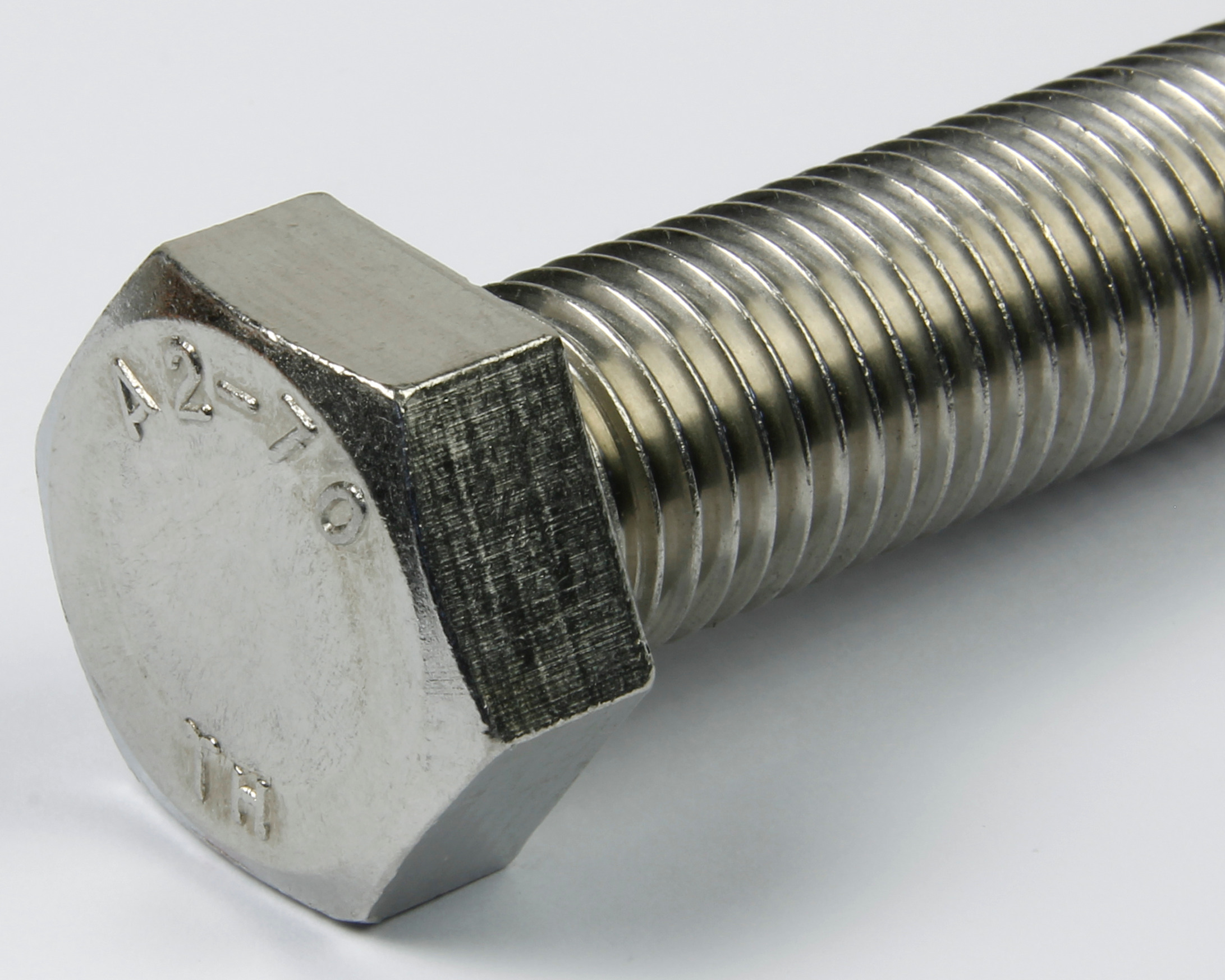 |
Stainless steel is a steel alloy containing at least 10.5% of chromium. Stainless steel is useful because of it's natural resistance to corrosion. It achieves this without the need for any additional finish being applied. Stainless steel is available in many different types, grades and formulations for use in a large variety of different tasks. Amongst these stainless steel types are a select few that are regularly employed in the manufacture of fasteners. |
Types of Stainless Steel
Stainless steel is available in many types and grades. Listed below are the most common grades used in the manufacture of fasteners. The most significant difference between each grade is the level of resistance to corrosion:
- A1 (303) - similar to A2, but more suitable for machining
- A2 (304) - the standard grade of stainless steel
- A4 (316) - more corrosion resistant 'marine' grade of stainless steel
- A5 (316Ti) - enhanced grade of A4 with improved corrosion resistance
- Duplex - special grade of stainless steel, superior to A5
- 301 - similar to A2, but used for parts needing some spring like properties
What is stainless steel used for?
Stainless steel has all the material advantages of steel with the addition of corrosion resistance. In the presence of oxygen the surface of the steel oxidises and forms a layer of inbuilt protection around the part. Regualr non-stainless steel parts would, under the same conditions and over time, rust and flake away.
Stainless steel can be work hardened and/or heat treated to improve it's mechanical properties including it's tensile strength. A tensile strength of between 500MPa and 800MPa is typical of the most common types of stainless steel fasteners, although other more exotic grades can be stronger.
What is steel?
Steel is an alloy of iron and carbon and sometimes other elements. It is one of the most widely used engineering materials in the world today and comes in many different grades. It is strong, affordable and practical to manufacture with.
What is high tensile steel?
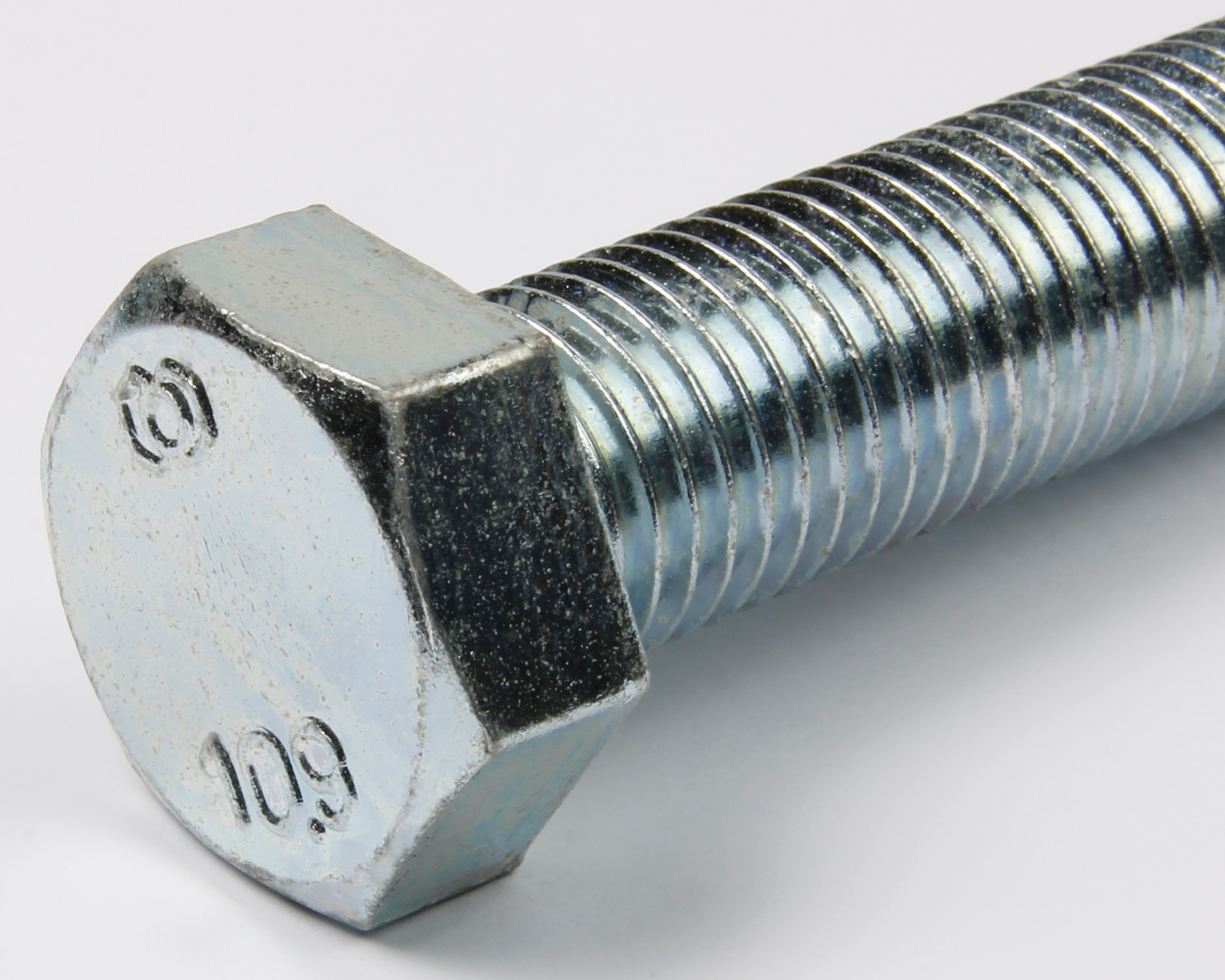 |
In the fastener industry 8.8, 10.9 and 12.9 are all common 'hi-tensile' grades of steel distinct from standard or mild steel grades, with tensile strengths of 800MPa, 1000MPa and 1200MPa respectively. High tensile fasteners will generally be marked with their strength grade stamped on them in some way. |
What is mild steel?
Mild steel is an affordable type of steel containing low amounts of carbon, typically between 0.05% and 0.25% by weight, and only very small traces of other elements. Due to the lack of alloying elements mild steel lacks the strength of other steels, typically 330MPa to 420MPa, but is popular for it's ductility, malleability, machinability and weldability.
Sometimes high strength fasteners are not required, low cost mild steel fasteners may be the perfect solution. These items will not usually include stamped markings displaying their strength.
Properties
Steel is usually the default option when specifying fasteners, as it is generally the cheapest option and readily available.
Steel is strong, tough and affordable, but is heavy and without some form of protection will readily corrode.
How is steel finished?
It is wise to provide some form of corrosion protection to newly formed steel parts. Off the shelf steel fasteners are generally coating in either some form of zinc plating or finished in black oxide. Other types of plating exist and include nickel, cadmium and chromium.
What is Zinc Plating?
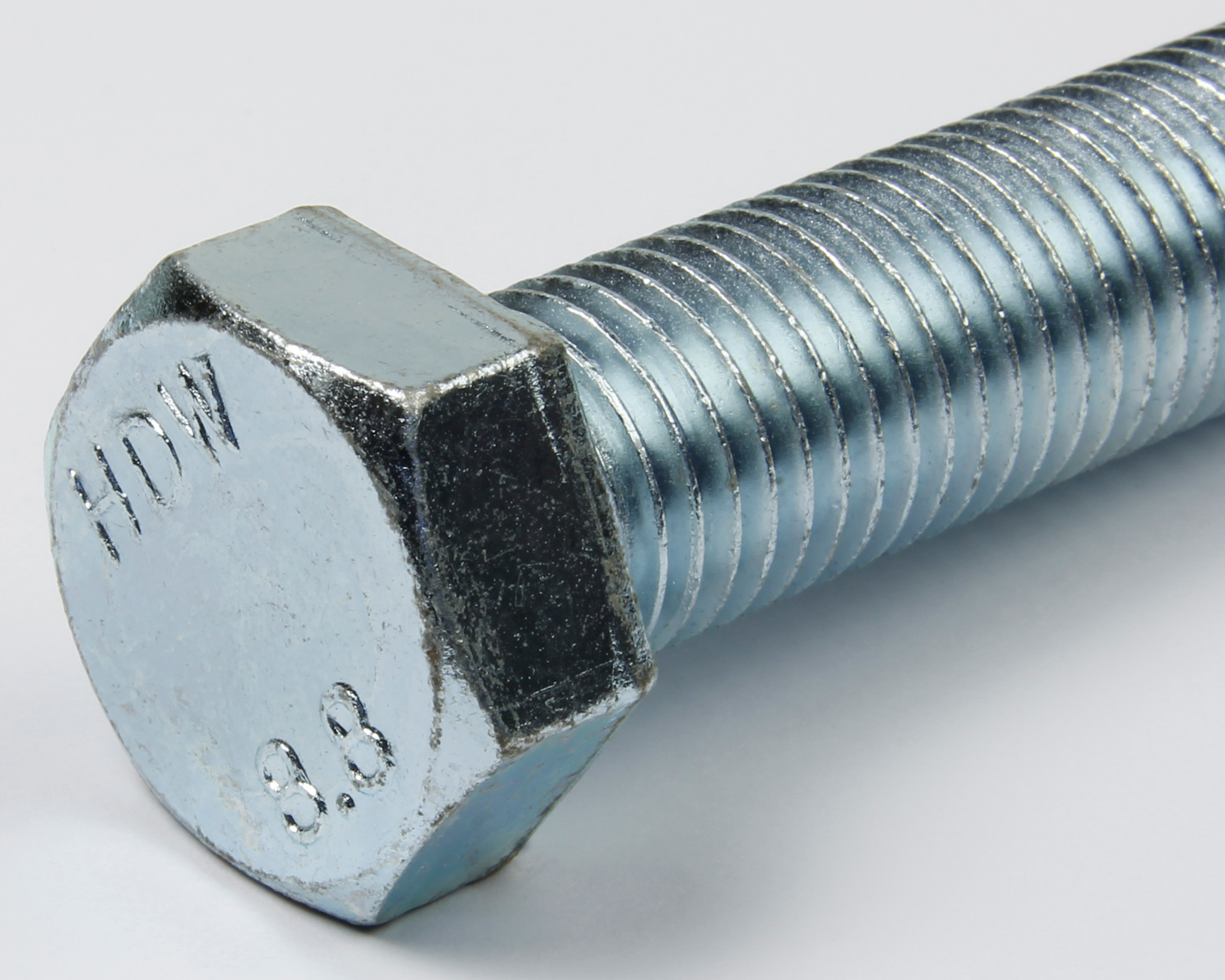 |
Zinc plating is usually coupled with a layer of passivation that provides extra protection as well as providing some colour. Passivation layers are usually clear or 'bright', or sometimes will have a yellow or gold tone. These finishes will be sufficient protection for use indoors and for fasteners that are hidden. |
What is Black Oxide Coating?
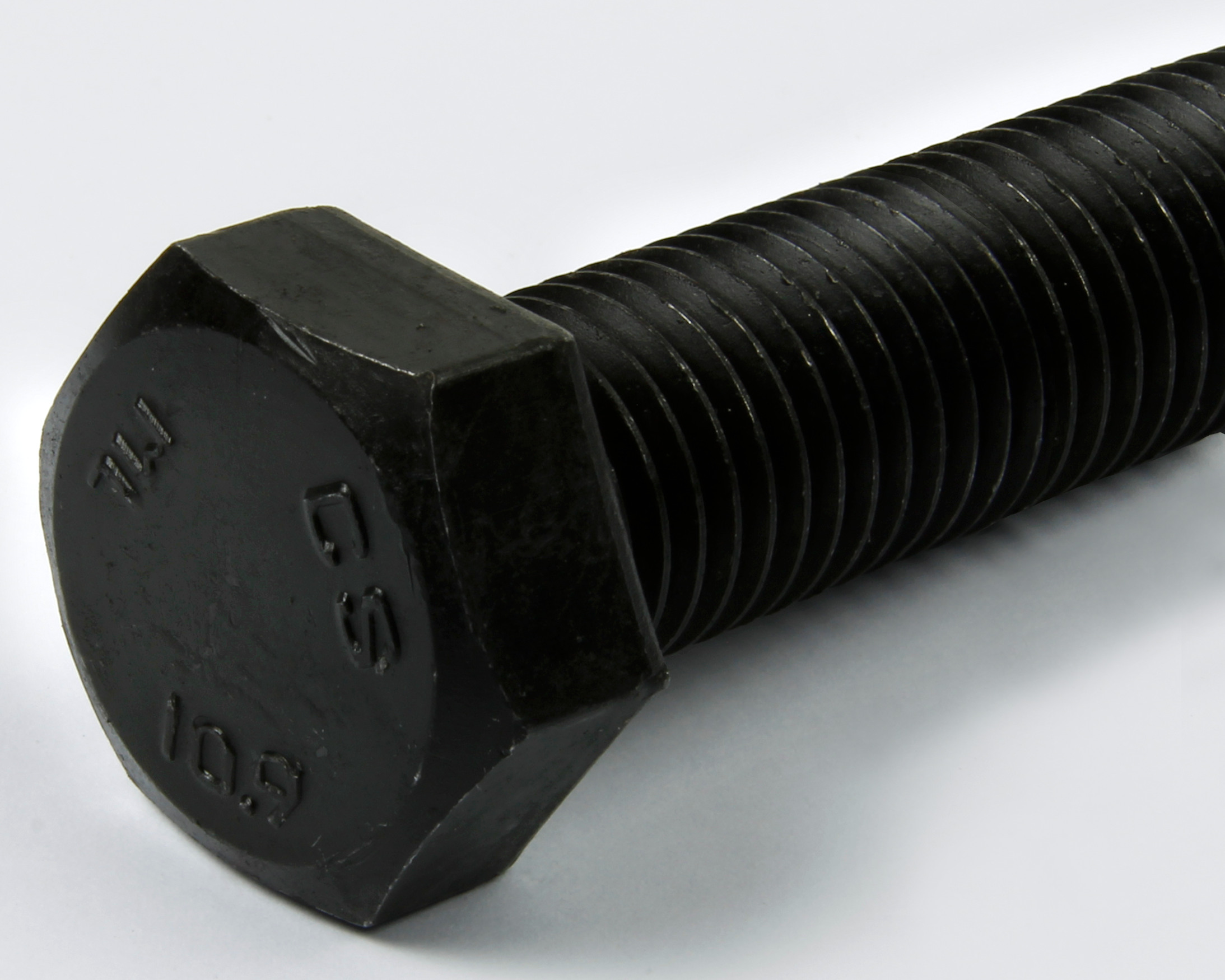 |
Black oxide is a coating generally found on otherwise plain metal parts and is often coupled with a thin oil coating to provide additional protection. Black oxide coating is very thin so will not significantly alter the dimensions of the part and is therefore a good solution for high tolerance components where corrosion resistance is not a priority. |
Once fitted, steel fasteners can be painted as part of their assembly to help with corrosion resistance and to fit in with the intended aesthetic.
What is Zinc Flake?
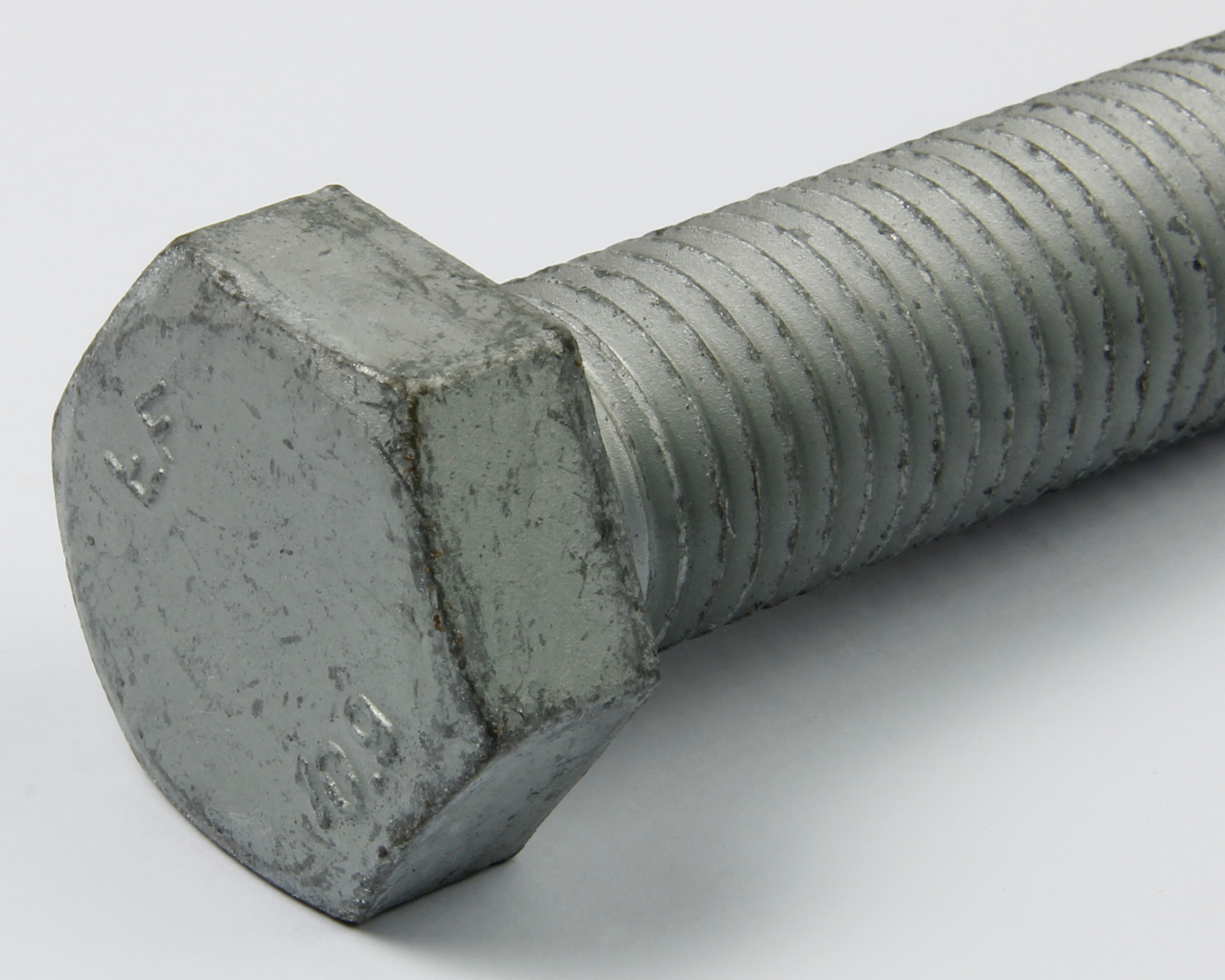 |
Zinc flake is a type of finish applied to steel parts. It is superior to zinc plating in that the coating will protect the part from corrosion for a much longer period of time. In addition, hi-tensile parts will not be at risk from hydrogen embrittlement. The finish itself is available under a number of proprietary names such as Geomet. |
Properties of Zinc Flake
Zinc flake is selected as a coating for it's corrosion resistance properties. These coatings are usually capable of resisting corrosion for around 500 hours in a salt spray test.
What is Zinc Flake used For?
Zinc flake coatings are often used in automotive applications, particularly on premium vehicles in outside the cabin locations.
What is Brass?
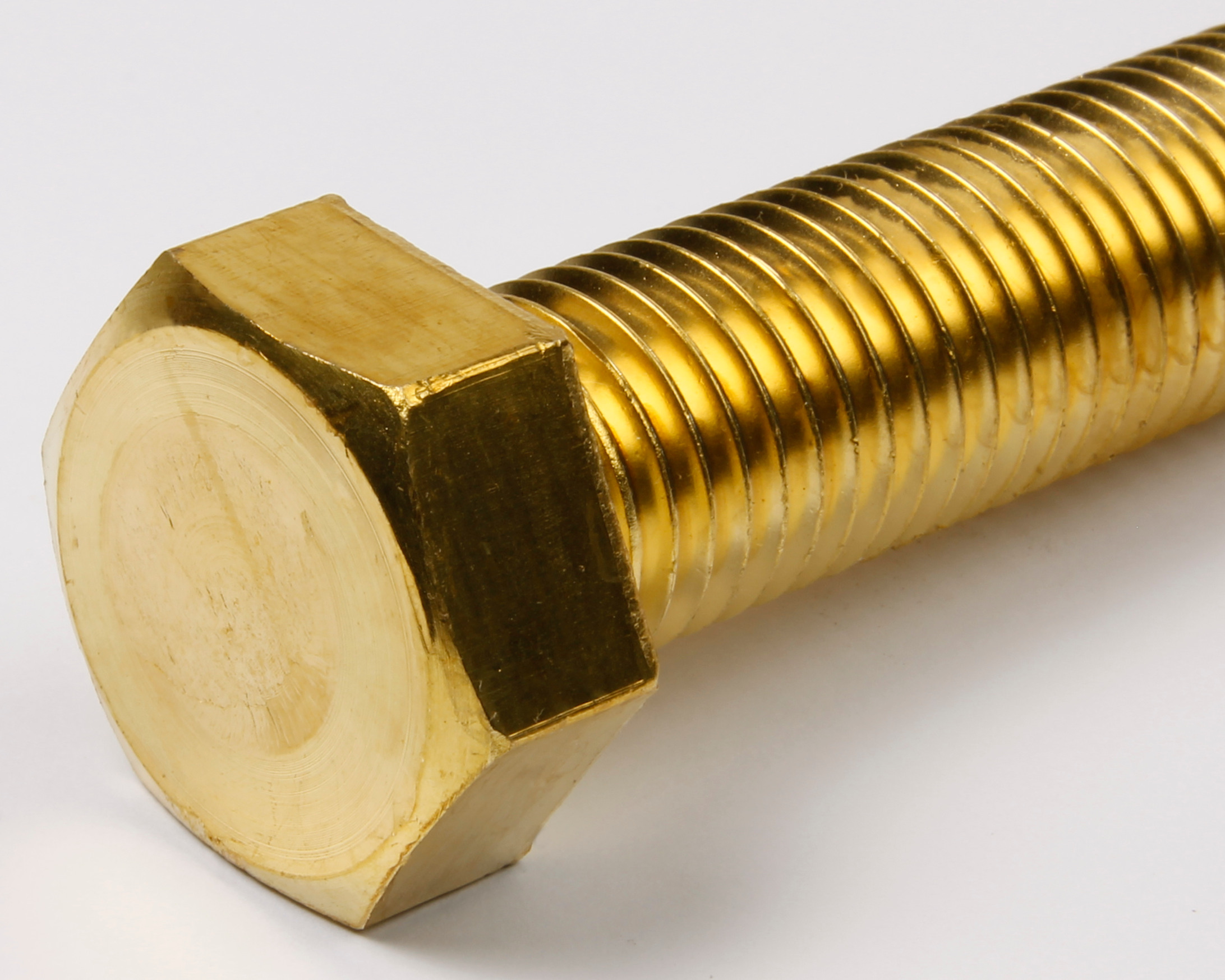 |
Brass is a yellow alloy composed of copper and zinc. |
Properties of Brass
It is an attractive highly corrosion resistant material that has good electrical conductivity and is non-magnetic. It is a softer material than steel, which means bolts will not have the same load bearing strength, typically 370MPa to 440MPa. Brass doesn't become brittle at low temperatures, unlike mild steel.
What is Brass used for?
Brass fasteners have a wide appeal, particularly in the marine, furniture and electrical industries.
What is Phosphor Bronze?
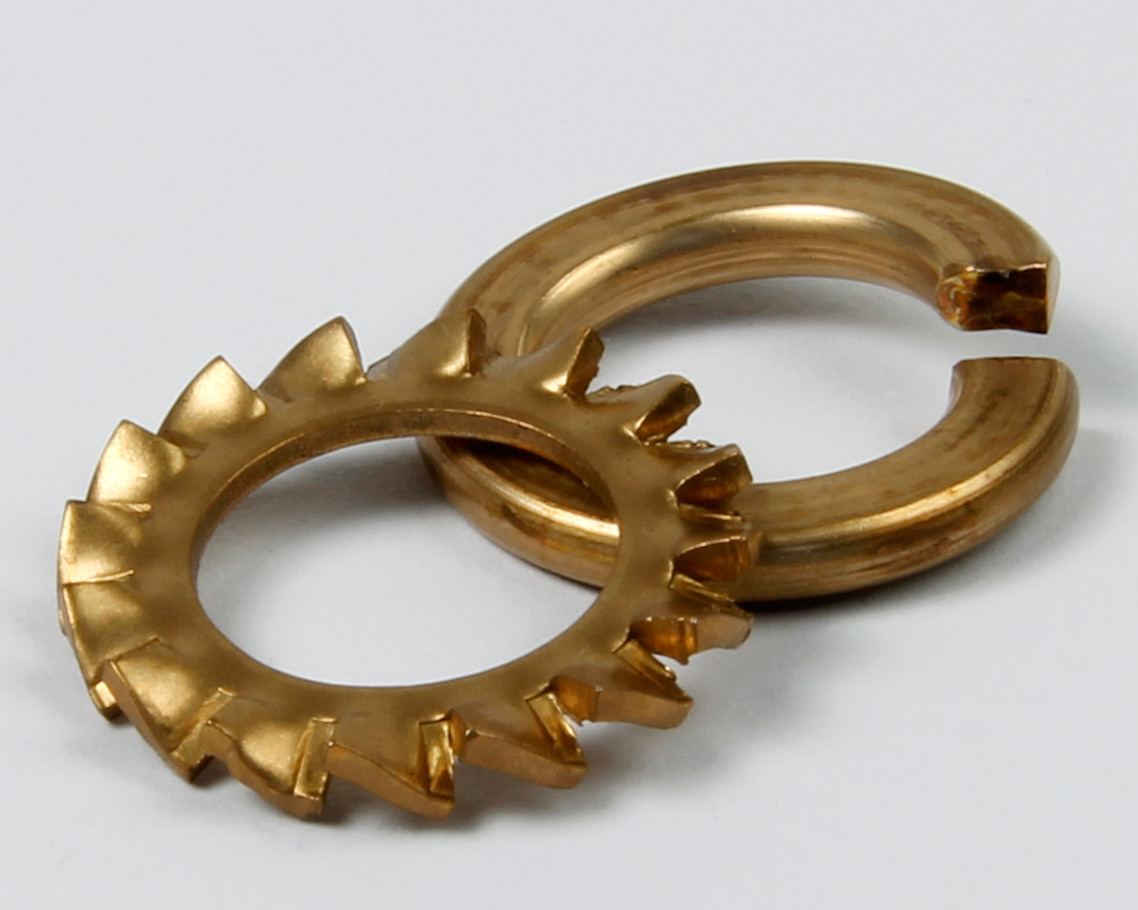 |
Phosphor bronze is a copper alloy with a mix of tin and phosphorus. |
Properties of Phosphor Bronze
Phosphor bronze has a high tensile strength, similar to steel, around 550MPa, and excellent corrosion resistance. It has excellent wear and fatigue resistance with low friction properties.
What is Phosphor Bronze used for?
The material is used for springs and washers and is often used with brass fasteners.
Phosphor bronze fasteners are used within the electrical, marine and other industries where the environment can be very corrosive.
What is Copper Alloy?
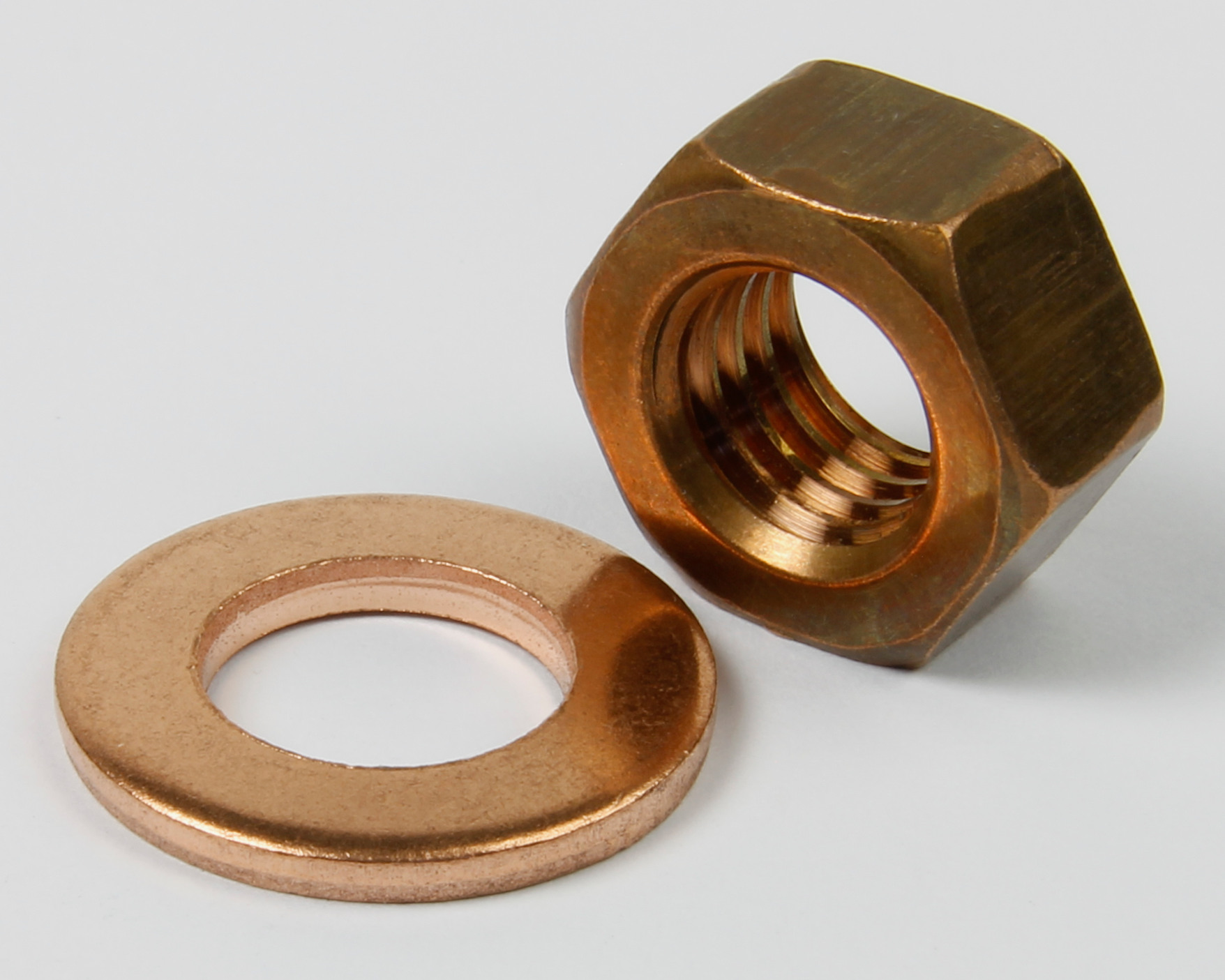 |
Copper is a reddish brown metal, frequently used in wiring and electrical connections due to its good electrical conductivity. |
Properties of Copper Alloy
Copper alloys have, perhaps suprisingly, a high tensile strength (240MPa to 640MPa) combined with good durability and corrosion resistance, but are about 25% more expensive than steel. Copper alloys have many good properties allowing them to withstand high pressure and high temperature environments. The copper alloy used for washers is highly ductile and malleable, enabling the washer to create a good seal. Copper has excellent thermal and electrical properties. Copper fasteners are less likely to corrode, can stand higher temperatures and are more resistant to vibration.
What are Copper fasteners used for?
Copper fasteners are not generally available in a wide range of types, but washers are popularly used in sealing applications.
What is Aluminium?
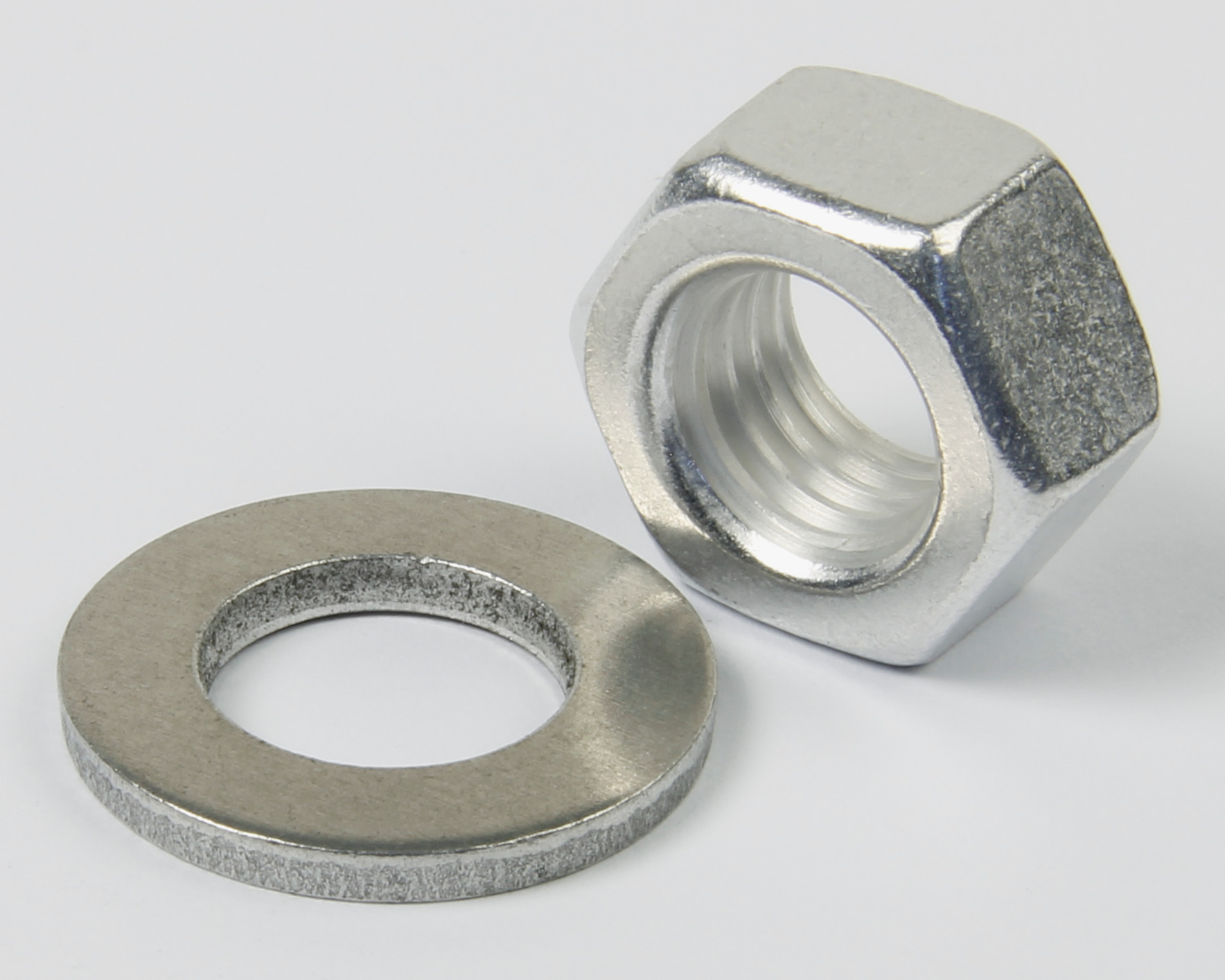 |
Aluminium is a whitish grey metal of light weight and good corrosion resistance. |
Properties of Aluminium
Aluminium is a non-ferrous metal, whose corrosion resistance works in a similar way to stainless steel. It has excellent electrical and thermal conductivity. It is non-magnetic and its strength actually increases at low temperatures. Tensile strengths of Aluminum range from around 250MPa to 510MPa
What is Aluminium used for?
As aluminium roughly weighs a third of the weight of mild steel, aluminium fasteners are used in car manufacturing, medical equipment and in the aerospace industry, where minimising weight is important and a high strength fastener is not required.
What is Titanium?
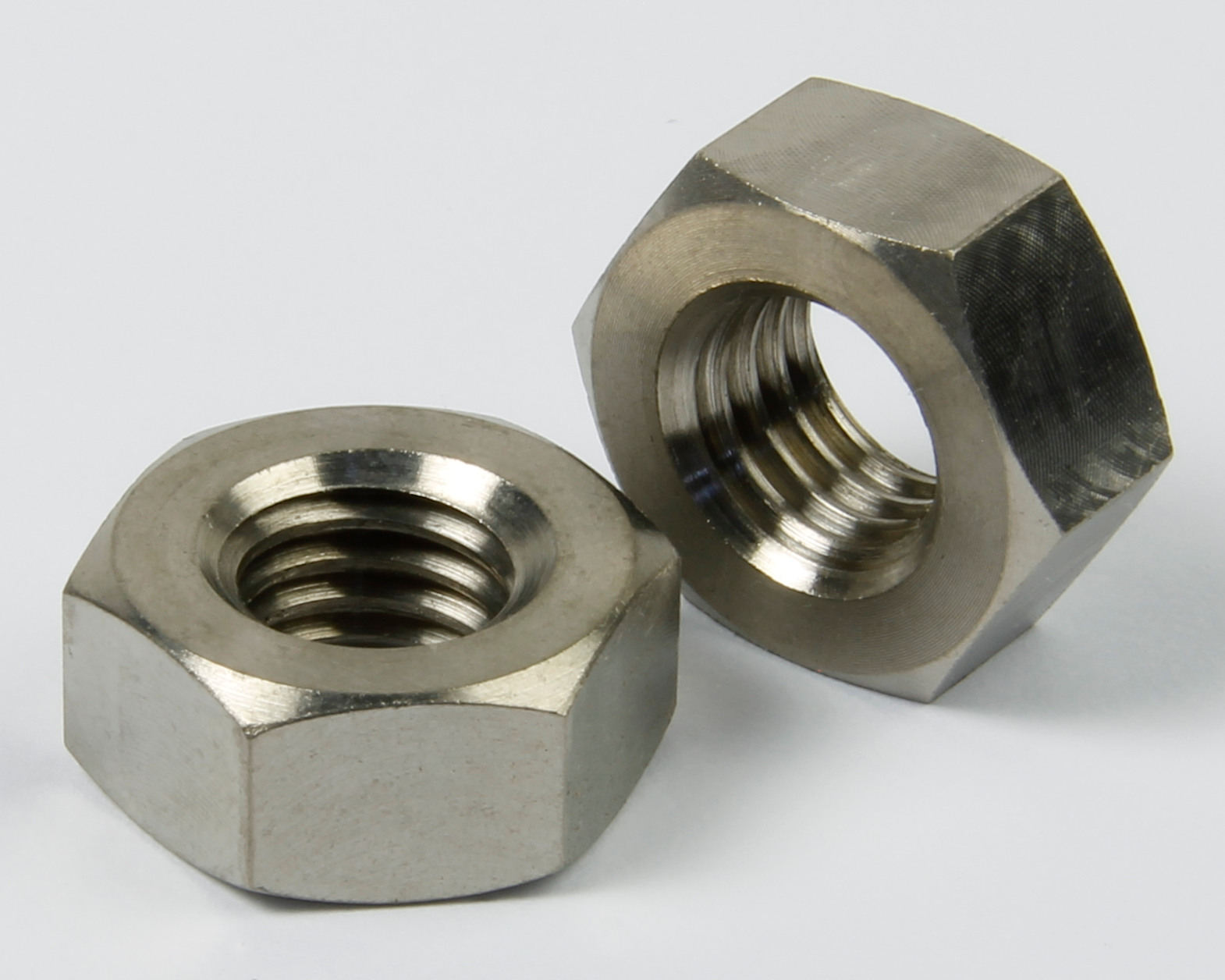 |
Titanium is a light weight metal, lighter than steel but heavier than aluminium, with a similar strength to stainless steel. |
Properties of Titanium
It has excellent corrosion resistance, but it tends to be expensive. Titanium's high plasticity means that it is resistant to stress corrosion cracking and to the effects of fluctuations in temperatures. It is non-magnetic and non-toxic. Titanium alloys exhibit tensile strengths of between 290MPa and 890MPa
What is Titanium used for?
Titanium fasteners are popular in the aerospace, medical and automotive industries and for sports equipment.
What is Nylon?
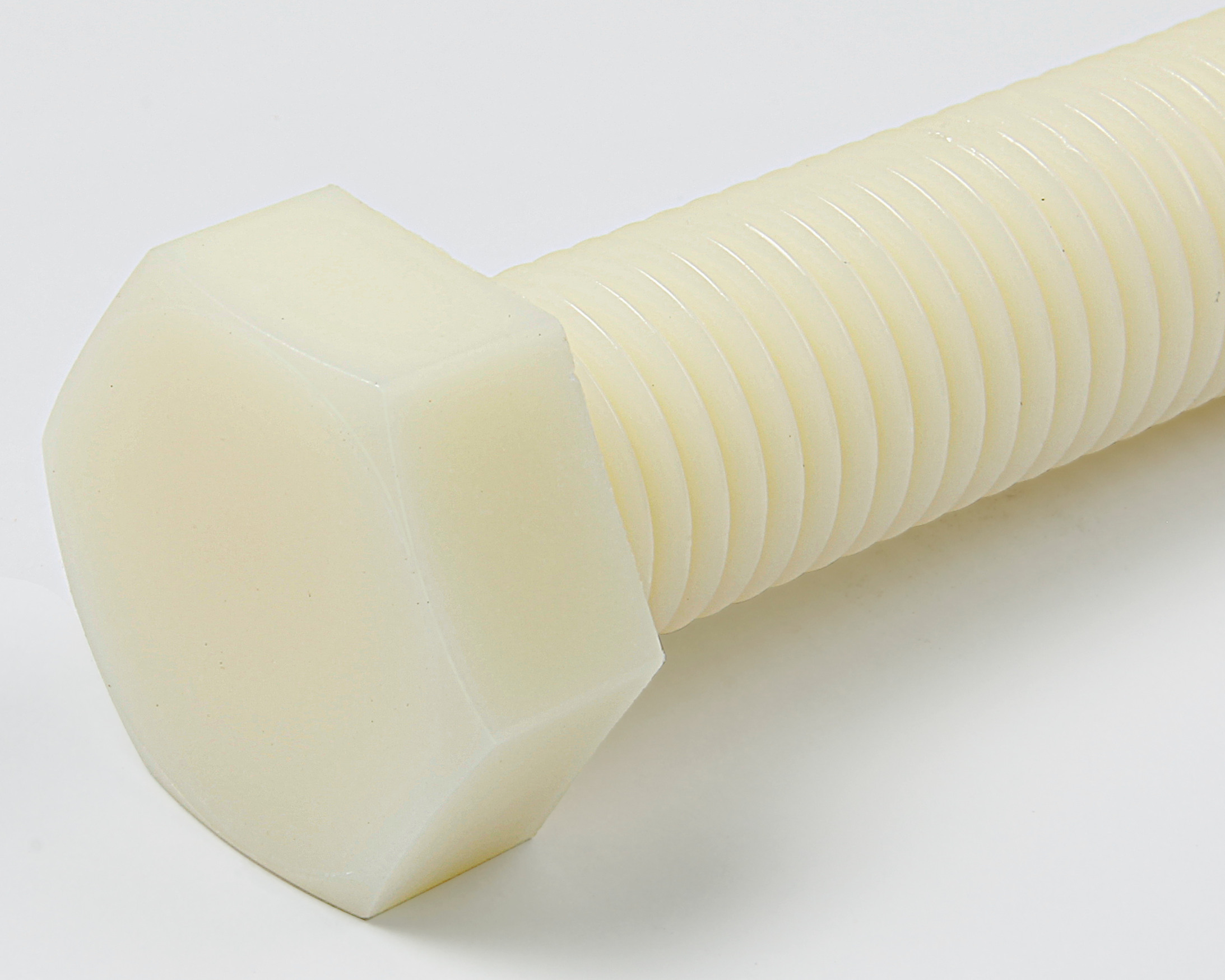 |
Nylon, also known as polyamide, is a lightweight plastic available in a range of colours. |
Properties of Nylon (Plastic)
The benefits of nylon, or any plastic fastener, when compared to metal fasteners are that they are lightweight, resistant to chemicals and saltwater, non-conductive, have good sliding ability and are stable in heat sensitive electronic or electrical situations. Their relatively low cost is also a useful factor. Nylon fasteners typically yield at 30MPa to 85MPa.
What is Nylon used for?
Nylon threaded fasteners are widely used in the aerospace, automotive and marine industries and in general consumer electronics and home appliances.



